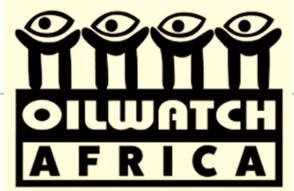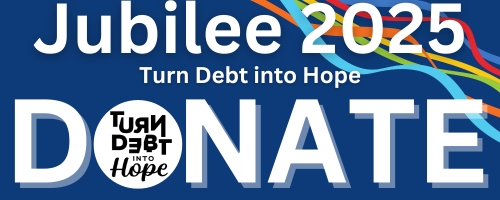Africa
Oilwatch Africa (OWA)

Website: https://oilwatch.africa/
Global partner since: 2020
Country: Located in Nairobi, Kenya. Coordinates work across 15 countries in Africa.
Focus: This report sheds light on a case study on loss and damage. The study, which took place in Ghana’s southeastern communities, was field visits driven, deploying interviews, group discussions and other forms of participatory models of engagements.
Oilwatch Africa (OWA) is a network that coordinates work across 15 countries to resist the negative impacts of the oil and gas industry on people and their environments. It has built a strong, active network to monitor and respond to the impacts of fossil fuel activities on African peoples and their environments.
OWA is the African unit of Oilwatch International, a network dedicated to developing global strategies for communities affected by oil operations and to supporting their efforts to ensure ecological sustainability. Oilwatch’s creation in 1994 was inspired by the need to create global strategies for the communities affected by oil activities, support their resistance processes, and work for sustainability and collective rights. We facilitate the exchange of information on oil activities in each country, the different resistance movements and the international campaigns against specific companies.
WoMin African Alliance

Website: https://womin.africa/
Country: Offices in South Africa
Global partner since: 2020
Focus: Mayan women of communities of the Solola region.
WoMin is a Pan-African ecofeminist alliance which works alongside organizations of women, peasants, and communities impacted by extractive developments. It aims to make visible and publicize the impacts of extractivism on peasant and working-class African women and support women’s organizing, movement-building and solidarity. WoMin is committed to advancing an African post-extractivist, ecologically-just, women-centred alternative to the dominant destructive development model, defining its role as one of support and allyship to movements on the ground and advancing this commitment through all our efforts. WoMin works on climate justice, consent and democratized socio-economic decision-making, as well as extractivism, militarization and violence against women.
Since 2020, KAIROS has supported WoMin’s “Women building power for energy and climate justice” program, which aims to deepen the women’s movement for energy and climate justice and create a Pan-African platform which centralizes women’s perspectives, leadership, and voice.
South Sudan Council of Churches

Website: https://www.globalministries.org/partner/south_sudan_council_of_churches/ & https://www.oikoumene.org/organization/south-sudan-council-of-churches
Country: South Sudan
Global Partner since:
Founded in 2013, the South Sudan Council of Churches is an ecumenical body comprised of seven (7) member Churches and associate Churches in South Sudan with a strong legacy of peacebuilding, reconciliation, and advocacy. SSCC provides a platform to enhance the spirit of ecumenical cooperation toward collective action for peace; by its very nature, the Church is a Peacemaker. For SSCC, “Peace is more than just the absence of war and silence of guns; neither is peace attained overnight and as the Church, we commit ourselves to this long-term process”.
KAIROS supports SSCC’s National Women’s Program (SSCC-NWP), which is deeply respected across the country and well-positioned to build bridges between the warring sides as it works to diffuse violence and lay the groundwork for lasting peace and, at the same time, empower women and girls and address gender injustice. The SSCC-NWP works with men and boys to help them understand the importance of gender justice and equity and the need to help make it a reality. The SSCC-NWP has been called to work on and speak out on the nexus of climate, conflict and gender as the security, rights and well-being of the communities and program participants they serve are increasingly affected by the impacts of climate, including flooding and droughts.
Héritiers de la Justice (HJ)

Website: None
Country: Sud-Kivu province in eastern Democratic Republic of Congo (DRC)
Global partner since: 2005
Focus: Survivors of gender-based violence supported by Héritiers de la Justice local network (SALVIS-PDF).
Héritiers de la Justice (heirs of justice) is a Congolese NGO and human rights organization specializing in peace promotion in the Great Lakes region, particularly in South Kivu. It was founded in 1991 by three people who were personally affected by the repressive, dictatorial and violent power tactics of the Mobutu regime. Through legal clinics, it provides legal training, information, and mediation. HJ’s team of women’s rights advocates, lawyers, and paralegals endeavour to bring justice for women survivors of war. They document cases of sexual violence, accompany women through the judicial process, and provide education on Congolese and international laws that protect their rights, advocating for the government to make policy changes to protect women and children. More recently, HJ has provided collective economic empowerment opportunities to women victims and survivors of gender-based violence.




